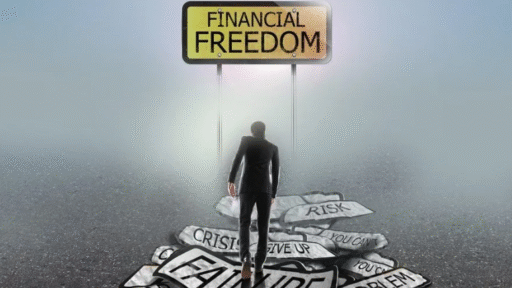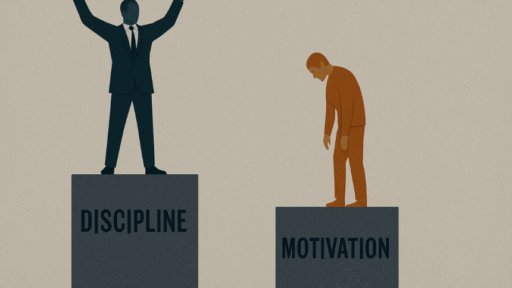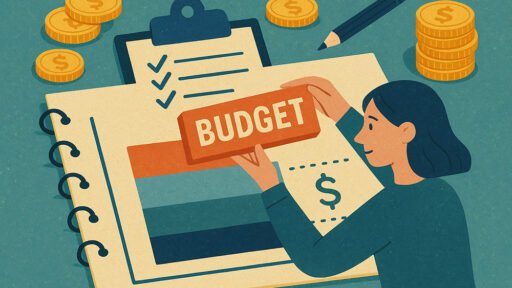When most people think about saving money, they focus on numbers, budgets and investment strategies. But here’s the thing that nobody tells you: saving is not just a math problem. It’s a rollercoaster of emotions that can make you feel guilty, anxious, proud and sometimes even ashamed — all in the same week.
Because the truth is, your relationship with money is intensely personal and connected to your emotions, memories and fears. You might feel a thrill as your savings balance grows, or a pang of guilt when you spend on yourself rather than growing that emergency fund even higher. So take heart from these emotional saving tips that will get you through the hard feelings brought on by making yourself financially secure while also staying mentally afloat and happy.
We’ll examine the emotional aspect of saving that financial gurus don’t often address, and learn how to process those feelings in a way that doesn’t undermine your long-term financial plans.
Why Your Money Mindset Matters More Than You Think
Your feelings will guide your financial decisions more than any spreadsheet ever can. Recall the last time you made an impromptu purchase or averted looking at your bank account. That’s not a logical decision — it’s an emotional one.
One study demonstrates that our brains “light up” when we save money in the same way they do when we receive rewards. But the reverse is also true: Spending can evoke a kind of relief, joy or even rebellion against rigid budgets. This emotional tug of war is what makes saving money harder than it needs to be.
Conflicting messages about money were drummed into the heads of many people as they grew up. Perhaps your parents argued about money, or you saw them struggle with making ends meet. Maybe you learned that it’s uncouth to discuss money or that wanting nice things makes you greedy. These early experiences influence how you feel about saving today.
The trouble is, if you turn a blind eye to such emotions, they don’t go away. But instead, they always seem to surface at the most inconvenient times — like when you are attempting to keep a budget or save for something crucial. It’s why knowing your emotional relationship with the green stuff is one of the most valuable emotional saving tips you can ever know.
The Guilt Trip: Saving So Much You Feel Like a Selfish Person
One of the main emotions that people feel when they are saving is guilt. You might feel guilty for:
- Not lending money to financially struggling family members
- Spending on yourself when others have less
- Telling friends who want to go to expensive parties no
- Choosing future over fun in the moment
- Saving while others struggle
This guilt can be paralyzing. You may be undermining your savings by pulling away from money, overspending so you don’t feel selfish and the simple refusal to save because it feels wrong.
Here’s the truth that you need to hear: Saving money does not make you selfish. Actually, you are better equipped to help others when building financial security for yourself. Think of it this way: It’s kind of like the airplane-oxygen-mask saying—you have to put your own mask on before assisting others.
How to Handle Savings Guilt
First of all, figure out where your guilt is coming from. Is it something that someone told you? A cultural belief? A past experience? Once you realize the root cause, you can work to challenge it.
Establish clear boundaries about your money. One can be generous and still save. You may want to have a dedicated budget category for helping others, so that you don’t give in a way that works against your other financial goals. This way, you are making conscious decisions instead of emotional responses.
You do realize that financial security is a common good, right? If you have savings, in times of emergency you’re not a burden. You can support family members from a place of power instead of contributing to the collective stress.
The Fear Factor: Anxieties About Money and the Future
Financial anxiety is a very real thing – and all too common, though even those considered to be doing “well” might find themselves reeling under its pressure. What you’re losing sleep over:
- Whether you’re saving enough
- What happens if you get laid off
- If your retirement savings can afford retirement
- The small, surprising costs that can ruin you
- If you’re judged because of your financial choices
This anxiety can lead to two very different responses. There are those who obsess over money, refusing themselves basic creature comforts and living in a perpetual state of longing. Others get too anxious and avoid reviewing their finances altogether.
Neither approach is healthy. Since the balance is such a delicate one, it’s never too early to start building up emotional saving tips.
Calming Your Financial Fears
Set a realistic target for your emergency fund. Many experts recommend setting aside three to six months of expenses, but even $1,000 will reduce financial anxiety considerably. You feel safer with something saved than nothing.
Break larger milestones into smaller ones. Rather than think “I need to have $50,000 saved,” concentrate on saving your first $1,000, followed by $5,000. Celebrate each milestone. This helps to make the whole journey seem less overwhelming and provides you with regular confidence boosts.
Automate your savings so you don’t have to go through the emotional exercise every time. When money is automatically directed into savings, you eliminate the daily stress of choosing between spending and saving.
If anxiety becomes seriously disruptive to your life, it’s a good idea to consider seeing a financial therapist. Financial therapy works like regular therapy — it allows you to work through your money-related emotions in a safe space.
The Comparison Game: When Everyone Else Looks Richer
Social media can give the impression that everyone else is living their best life while you’re pinching pennies. You watch friends go on exotic holidays, purchase new cars or move into nice houses and suddenly how you’re doing doesn’t feel good enough.
That comparison trap can be the death of your motivation to save. What’s the point in saving for a simple vacation when everyone is in Bali? Why bother making a lunch if everyone else you work with goes out to eat?
But you know what you don’t see on social media: the credit card debt, the financial stress, no savings, or family money propping up those lives. You’re measuring your behind-the-scenes reality to everyone else’s highlight reel.
Breaking Free from Comparison
Focus on your own journey. Your goals are personal and valid, whether you’re saving for a $500 emergency fund or a $50,000 down payment. Progress is progress no matter what others are doing.
Limit social media if it triggers spending. If social media heightens your desire to spend or leaves you feeling inadequate, it may better serve you to take a break. You don’t have to quit entirely, but being mindful of your consumption can protect both your mental health and your wallet.
Find a financial accountability buddy who is aligned with your values. It makes a big difference to have someone to celebrate the small wins with (and who can relate to your struggles). Find someone who isn’t going to judge you or pressure you about your finances.
The Deprivation Mind-Set: When Saving Feels Like Punishment
So many of us have an all-or-nothing approach to saving. They cut all the fun, deprive themselves of small pleasures and think about saving as a punishment for past financial mistakes.
This scarcity mentality hardly works in the long run. You will eventually burn out, and might blow all your savings in a spending spree. It’s like a diet of plain chicken and broccoli — you can follow the rules for a while, but sooner or later, you’ll crave pizza.
The best emotional saving tips realize you’re only human. You require joy, comfort and occasional treats. The objective here isn’t to cut all spending — it’s to spend intentionally on things that are important to you.
Saving Without Deprivation
Build fun into your budget. Spend some money on the things you enjoy, even if it means saving a little less right out of the gate. A budget that factors in your favorite coffee shop visit each week is going to be more sustainable for you than one where it’s all about deprivation.
Practice value-based spending. Ask yourself: “Does this purchase match what I care about?” You may discover that you don’t even want half the stuff you routinely purchase out of habit or boredom. Divert that money into things that actually make you happy.
Allow imperfection. You’ll have months when you save less or even need to dip into savings. That’s normal. It’s all about the big picture, not getting everything just right every month.
Develop a “splurge fund” separate from your standard savings. This money is specifically for occasional treats without guilt. The next time you want something extra, see if it’s covered under your splurge fund. If yes, enjoy it guilt-free. If not, you wait until there is or re-evaluate whether you actually need it.
Emotional Triggers That Destroy Your Savings
We all have certain circumstances that trigger emotional spending or make saving more difficult. Knowing what triggers you is one of the best emotional saving tips you can take action on.
Common Emotional Triggers and Alternative Responses
| Trigger | Emotional Response | Alternative Action |
|---|---|---|
| Bad day at work | “I deserve a treat” | Call a friend, take a walk, do a free stress relief activity |
| Seeing ads/sales | Fear of missing out | Unsubscribe from marketing emails; wait 24 hours before buying |
| Invited by friends | Guilt about saying no | Suggest something less expensive; be honest about what you can afford |
| Boredom | Shopping as entertainment | Do free activities or pursue hobbies; visit the library |
| Problems in relationships | Retail therapy | Write in a journal, exercise, talk to someone |
| Good news/celebration | The reward spiral | Plan and celebrate within your budget |
The pattern is typically this: trigger → feeling → spending decision. Once you realize what your own triggers are, however, you can interrupt this cycle before it sabotages your savings.
Building Awareness of Your Patterns
Maintain a spending log for two weeks. Every time you spend money, jot down what you bought and how you were feeling. Don’t judge yourself—just observe. You’ll start to notice patterns that reveal what your emotional spending triggers are.
Pause before purchases. If you want something, wait 10 minutes and ask yourself: “What am I really feeling right now? What do I actually need?” What you’ll often discover is that you’re trying to solve an emotional problem with a financial fix.
Develop non-spending responses to emotions. Start a list of free or cheap activities to address different feelings: stress, boredom, sadness, loneliness. You have alternatives in place for when those feelings come.

The Pride and Shame Cycle
Saving puts you through a special emotional wringer. You feel proud and accomplished when saving works out. Fail, however, by overspending or undersaving? You feel shame.
It only becomes a cycle when the guilt keeps you from getting back on track. You might avoid reading your bank statement if you are embarrassed about your balance. Or, you could just give up because you feel the damage is already done.
Shame especially is devastating because it makes you want to hide. But financial shame flourishes in the dark. The more that you avoid something about your finances, the greater the shame becomes.
Breaking the Shame Spiral
Practice self-compassion. Talk to yourself the way you would talk to a good friend who made a financial mistake. You wouldn’t call them stupid or worthless, so why treat yourself that way?
Separate your worth from your net worth. Your bank account balance does not define your worth as a human being. You are learning, growing and doing your best. That’s enough.
Discuss your struggles with someone trusted. Financial shame loses its power when you drag it into the light. You will probably find that lots of people have similar struggles, which helps dissipate the isolation created by shame.
Focus on the next decision, not previous mistakes. You can’t rewrite the past, but you can make a good choice right now. Each moment is a fresh start.
When Saving Feels Impossible: The Scarcity Trap
The emotional side of saving is even trickier if you live strictly paycheck to paycheck. When you’re barely getting by and only covering the basics, saving money may seem like a cruel joke. The suggestion to “just save more” ignores the fact that sometimes there’s simply nothing left to save.
This is what psychologists refer to as a scarcity mindset. Your brain actually works differently when you’re constantly afraid of running out. You make short-term decisions, because you can’t plan for the long term while in survival mode.
For folks in this situation, the standard emotional saving tips simply may not apply yet. That’s okay. Your first goal should be stability, not perfection.
Baby Steps When Money Is Tight
Start impossibly small. If all you can do is put away $1 a week, then save that. The amount is irrelevant — establishing the habit is what counts. When saving is a habit, increasing the amount becomes much simpler.
Look for windfalls, not regular income. Tax refunds, birthday money, rebates or returns can go directly into savings. It’s less painful than daily sacrifices.
Focus on preventing money emergencies versus accumulating wealth. Can you do preventive car maintenance that will help save money on costly repairs? Can you improve your health and cut your medical bills? A little prevention saves a lot of money in the long run.
Seek support without shame. There are food banks, assistance programs and community resources that exist to help people build stability. Using them isn’t failure — it’s sensible resource management while you construct your financial foundation.
The Emotional Cost of Financial Goals
Saving is a world of trade-offs, and those trades come with emotional costs that no one tells you about. You might skip social opportunities because you’re saving. You may feel like an outsider when friends are traveling while you stay home. You may see your kids’ friends with items that yours don’t have.
These emotional costs are real and valid. Recognizing them is not a sign of weakness or ingratitude; it’s a sign that you are human.
The question is: Is your financial goal worth the cost to your emotional well-being? Sometimes it is. Sometimes you need to modify your goals so that they better fit with the realities of your life and values.
Balancing Goals and Emotional Health
Regularly reassess your financial goals. Do they still matter to you? Do they represent who you are now and your current needs? It’s perfectly fine to change course if a goal no longer serves you.
Invest in your life while you are saving. You don’t have to wait until you meet your savings goal before you can enjoy life. Look for ways to make memories and have fun without breaking the bank.
Talk to family members about your financial priorities. When others understand why you’re making particular choices, they’ll be more inclined to support your decisions or to suggest alternatives that align with your objectives.
Consider the Emotional Return On Investment. Some purchases or experiences are emotionally valuable even if they slow savings. A family vacation could be more meaningful to you than hitting your savings goal two months sooner.
Creating an Emotionally Sustainable Savings Journey
The best emotional saving tips are about sustainability. Your savings plan has to feel emotionally sustainable, not just mathematically sound. Here’s how you can build emotional sustainability into your financial life:
Design for Your Personality
Visual trackers such as charts or coloring sheets are great if you enjoy tracking progress. If you tend to forget, automate everything. If you’re competitive by nature, gamify your savings with challenges. Get your system to work with your natural tendencies, not against them.
Celebrate Non-Financial Wins
Acknowledge moments when you resist temptation, stick to your budget, or make intentional choices. These victories are just as important as the money saved because they reflect behavior change.
Create Positive Emotional Associations
Pair your savings with good feelings. Label your savings accounts with inspiring names (“Dream Vacation” instead of “SavingsAccount2”). Check your balance when you are feeling good, not only when you feel anxious. Create positive emotional connections to saving.
Practice Gratitude
Frequently take inventory of what you do have instead of obsessing about what you don’t. Gratitude doesn’t mean ignoring financial struggle, but it helps keep perspective and minimize resentment about saving.
Building a Healthier Money Relationship
Your relationship with money is a relationship, plain and simple. It needs attention, honesty and work like any other relationship. Working on this relationship is actually one of the best emotional saving tips you will ever act upon.
Begin by examining your money beliefs. What did you learn about money as a child? What do you think of people with money? About people without it? Your beliefs shape your behavior.
Challenge beliefs that aren’t serving you. If you believe that money is “the root of all evil,” you will likely sabotage your savings efforts because of unconscious resistance. If you believe that “I’m bad with money,” you will live out that prophecy. Replace those limiting beliefs with new, more useful ones.
Practice having neutral money conversations. Talk about it the way you’d talk about the weather: in a matter-of-fact way, without judgment. This can reduce the emotional charge around money.
Build financial literacy without judgment. Get educated on money management, investing and personal finance from reputable sources. The more you know, the less anxious you will feel and the more confident you will be. For comprehensive guidance on managing personal finances and building better money habits, consider exploring educational resources from trusted financial institutions.
When to Seek Professional Help
Sometimes the emotional side of saving demands professional help. You might consider seeking support if:
- Financial worry disrupts daily life
- You can’t talk about money without intense emotions
- Past financial trauma haunts current decisions
- Despite your desire to change, you sabotage yourself repeatedly when it comes to finances
- Financial anxiety harms your relationships or mental health
Financial therapists work in the realm where money, emotion and psychology meet. They can support you in processing money trauma, shifting damaging patterns and developing a healthier relationship with money.
Traditional therapists might also be helpful if financial stress is part of wider mental health issues. Don’t be afraid to ask for help – your mental health matters.
Frequently Asked Questions
Why do I always feel guilty about saving money?
Guilt around saving tends to come from beliefs that saving is selfish, or that you should always put others before yourself. It could stem from cultural messages, family expectations, or past experiences. Keep in mind that creating financial stability means you’ll ultimately be able to better support others. You can be both generous and financially prudent by setting boundaries and budgets for giving.
How can I stop comparing my savings to others?
Begin by limiting time spent on social media and conversations that spiral you into comparison. Remember, you’re watching other people’s highlight reels, not their entire financial reality. Focus on your own journey by tracking your progress and celebrating your wins. Find an accountability partner who supports your goals, not someone who triggers comparison.
Why do I have anxiety around money even when I’m saving well?
Financial anxiety is very common and does not necessarily correspond to actual financial insecurity. Even people with substantial savings experience money anxiety. If anxiety is particularly crushing, ways to work through it may include seeing a financial therapist, creating concrete plans for your worries and practicing stress-reduction techniques. Sometimes anxiety is a signal that you need more financial education to feel confident about your choices.
Is there a way to save without feeling deprived?
Yes! Build fun into your budget right from the start. Spend money on what truly brings you joy, even if it means saving a little less initially. Practice value-based spending where you intentionally choose purchases that reflect what matters to you. Give yourself permission for treats from a “splurge fund” category. Saving should be sustainable, not temporary suffering.
What should I do when emotional spending derails my savings?
First, practice self-compassion instead of shame. Everyone makes financial mistakes. Identify what triggered the spending, then develop alternative responses for next time. Get back on track immediately rather than giving up. If emotional spending is a recurring pattern, consider seeking help from a trusted friend, financial counselor or therapist.
How do I deal with financial stress in relationships?
Open communication is essential. Discuss financial goals, fears and values without judgment. Recognize that partners often have different money personalities, and find compromises that work for both people. If money differences are significant, consider working with a financial counselor together. Keep in mind that financial stress is one of the biggest relationship challenges — you are not alone.
Your Emotional Savings Journey Starts Here
The emotional landscape of saving is complex, personal and rarely discussed. But recognizing those feelings doesn’t make you weak — it makes you human. By using these emotional saving tips, you’re building not just financial security but also a healthier relationship with money.
Remember—saving money is a journey, not a destination. There will be good months and bad months. You will feel proud on some days; you will feel discouraged on others. All of these feelings are valid and normal.
The goal is not to eliminate emotions from financial decisions, which would be impossible and perhaps undesirable. Rather, learning to understand your emotions around money—and to work with them without letting them undermine you—can help guide your financial choices in ways that support both your financial goals and your psychological wellbeing.
Start small. Choose one emotional saving tip from this article to practice this week. Perhaps you will maintain a spending journal, add a fun money line item to your budget, or simply pause the next time something tempts you and check in with yourself. Whatever you choose, you’re taking an important step toward both financial and emotional health.
Your relationship with money is one of the longest relationships you will have in your life. It’s worth the time and energy to make it healthy. Be patient with yourself, celebrate the small victories and remember that every single good financial decision you make—no matter how small—is progress.
The emotional side of saving is real—but it doesn’t have to control you. With greater awareness, compassion, and concrete strategies you can build the financial stability you deserve without sacrificing your mental and emotional wellbeing. You’ve got this.









